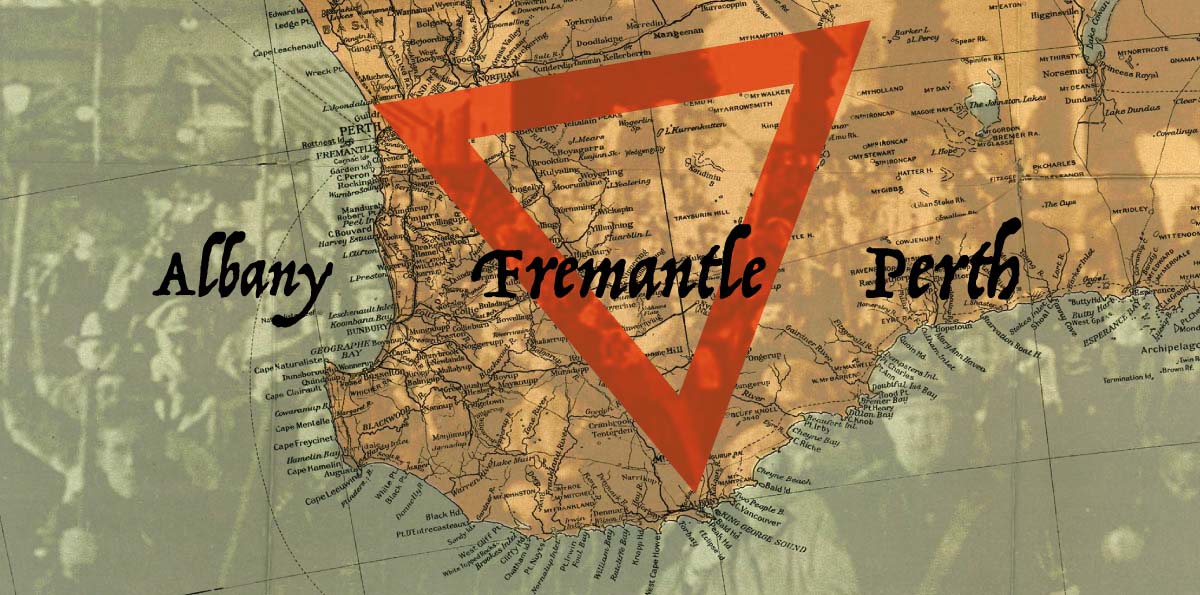A few days ago the early warning systems of the islands of Hawaii announced that a intercontinental ballistic missile was heading their way and it was not a drill. Forty-eight hours ago, black ash floated down on the suburbs of Perth. The air not only felt hot, it smelt it. The mid-afternoon light dimmed to a dark orange. The forests around Mundaring were on fire. Twenty-four hours ago the rains began. These were ex-cyclonic rains, they started and did not subside. Twice a summer’s month rainfall fell in a few hours…
… This morning I did some business with my computer. Today was to be one of my research days and I noticed that a small update was required for my laptop. While the download took place I got ready to go into the library, when I returned about ten minutes later the re-start took place and my lap-top was dead—utterly destroyed.
All my research notes, photographs, records, databases of the past decade were on that computer and all were gone— at least until my mirror backup system finishes its work in about seven hours time. In practice, I’ve probably lost about two weeks, (probably less) of emails and photographs. Only the photographs really mattered. I had taken a hundred or so of family photos over the holiday period, now only a dozen or so— either printed out, or shared on social media— survive. At the end of the day, only I know there were many other images that once existed. All anyone else will ever know is a possibly fading piece of paper or the caprice of the magnanimity of a social media company to continue to maintain someone else’s memories.
On the weekend (before the world ended) I watched a documentary called “Stories We Tell” by Canadian activist/actor/director Sarah Polley. The subject matter resonated with me for reasons that will become very clear to anyone when they see this film. I highly recommend that they do. That it concerns the director’s search for her biological father and the effect this has on the rest of her family doesn’t really do justice to the scope of this work. The approach she has taken in this work is uncompromisingly critiqued in the very documentary itself so I don’t think I need to say any more here, except to say, I don’t think I could be so unflinchingly honest about certain aspects of my family story. With both she, her parents and biological father being either professional actors and/or Canadian cultural celebrities it should have been no surprise that there was so much archival visual material to call on. Yet I was continually amazed that at key moments in the story there seemed to be the exact bit of 8mm film that matched what the script was describing, including footage from her mother’s funeral and family parties that showed exactly the key moments in the family’s history. Could they really have been that fortunate?
Only towards the end of the film does a bit of un-commented on business show the reconstruction of these key moments by a film crew aided by lookalike actors, including the director’s sister in a blond wig who looked more like their mother than their mother did. This footage might be described as “fake” yet it blends in so seamlessly with existing material, except in the more obvious moments, how would anyone tell? Abruptly, my viewing ended about (I guess) five minutes before the end as my broadband internet connection failed again… It was that sort of weekend. But it got me thinking—If it had failed five minutes earlier, would I have even known that much of the supposed archival footage in this film was not authentic? And if I did not, what difference would that have made?
I’m writing this in the Battye Library in the centre of Perth. All around me are the records of the fragments of history, not only relating to me, but of the entire state of Western Australia. In case of a fire, flood, nuclear missile strike, power failure or hard-drive crash, how much of our shared heritage would be unknowably gone?
Its something we ought to reflect upon.


